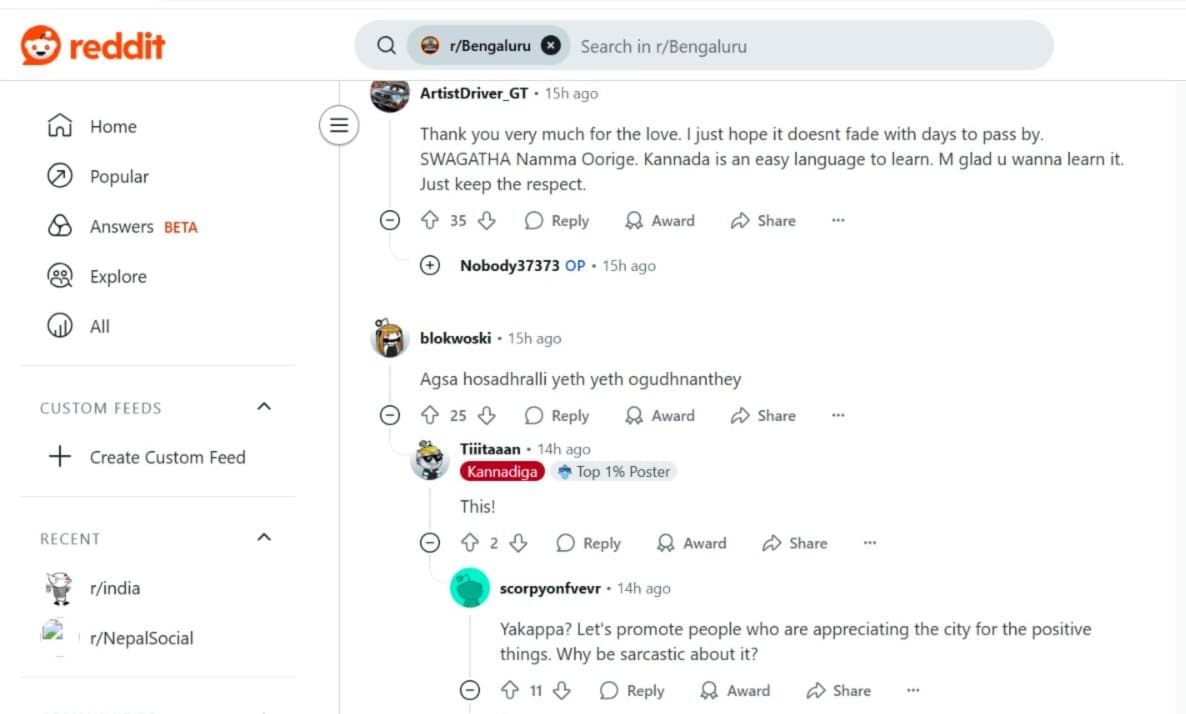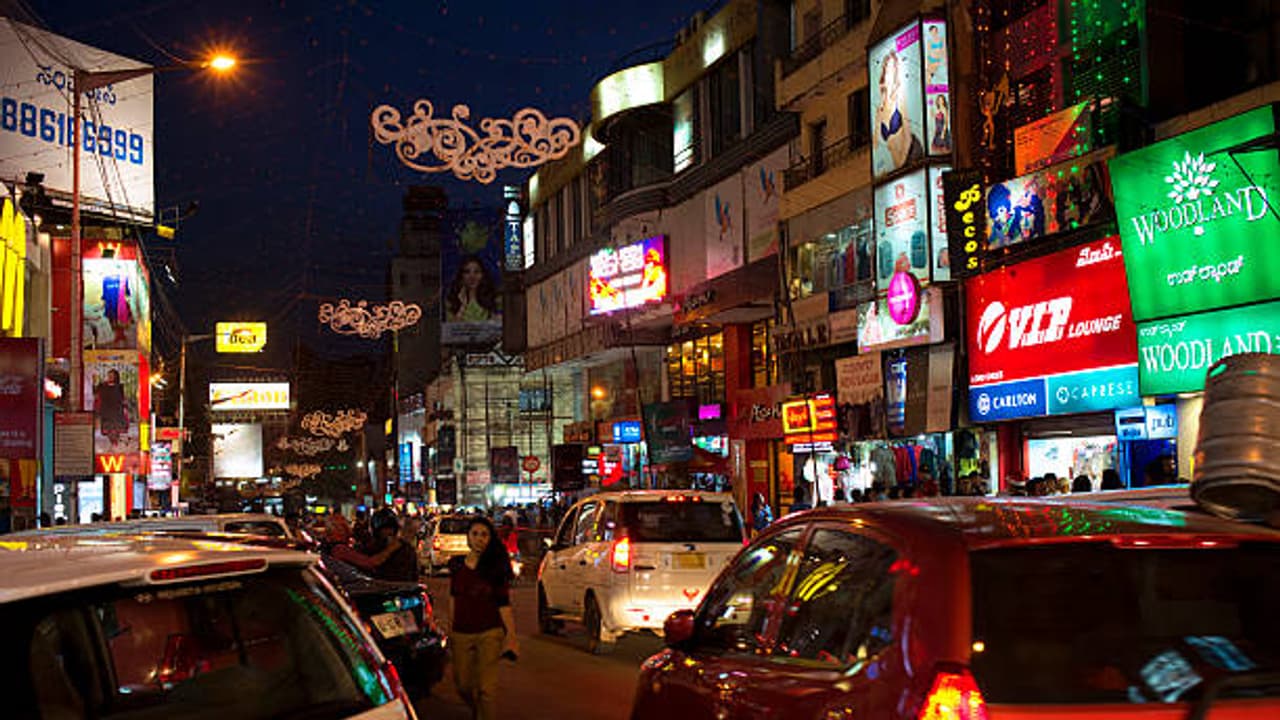Bengaluru, often hailed as the “Silicon Valley of India,” is known for its tech hubs and cosmopolitan lifestyle. But for one student from West Bengal, the city’s true charm lies in its deep-rooted cultural pride and warm people.
Bengaluru, often hailed as the “Silicon Valley of India,” is known for its tech hubs and cosmopolitan lifestyle. But for one student from West Bengal, the city’s true charm lies in its deep-rooted cultural pride and warm people.
“F*ck all that ‘Silicon Valley of India’ tag, cause you definitely don’t need it. Even without that, you, the Kannada people are so damn awesome man,” he wrote.
What fascinated him most was Bengaluru’s linguistic pride. From Starbucks and KFC to clothing brands like Peter England and WROGN, he noticed that signboards prioritize Kannada first before English. This single detail, he said, made him desperate to learn the language.
“This reason alone, makes me desperate to learn Kannada NOW. It is truly commendable,” he added, praising the city for respecting its roots.
Student compares experience with West Bengal
The student contrasted his experience with life in his hometown in West Bengal, where he felt traditions and cultural pride were fading. Bengaluru, in his eyes, represented a refreshing change — a place where people not only embrace modernity but also safeguard their heritage.
He also reflected on the lifestyle differences between the two regions. While critical of what he called “wannabe culture” among some youngsters who indulge in hookups, smoking, and late-night partying, he admitted that it might just take time for him to understand their choices. For now, his focus, he said, remains on studies, sports, friendships, and learning Kannada.
In his follow-up note, he clarified that his admiration was genuine and not meant for “karma farming” or online attention.
“Just chill out guys, I am just a kid in a big city. After all those years of living like that, I finally get to engage in some good welcoming environment. The people are good, who respect their roots and traditions. Something that’s dying in WB rn,” he explained.
The post has since sparked conversations online, with many Kannadigas appreciating the outsider’s perspective and others debating his cultural comparisons.

